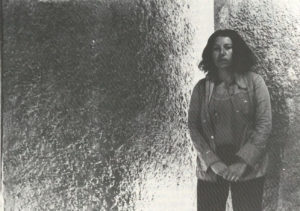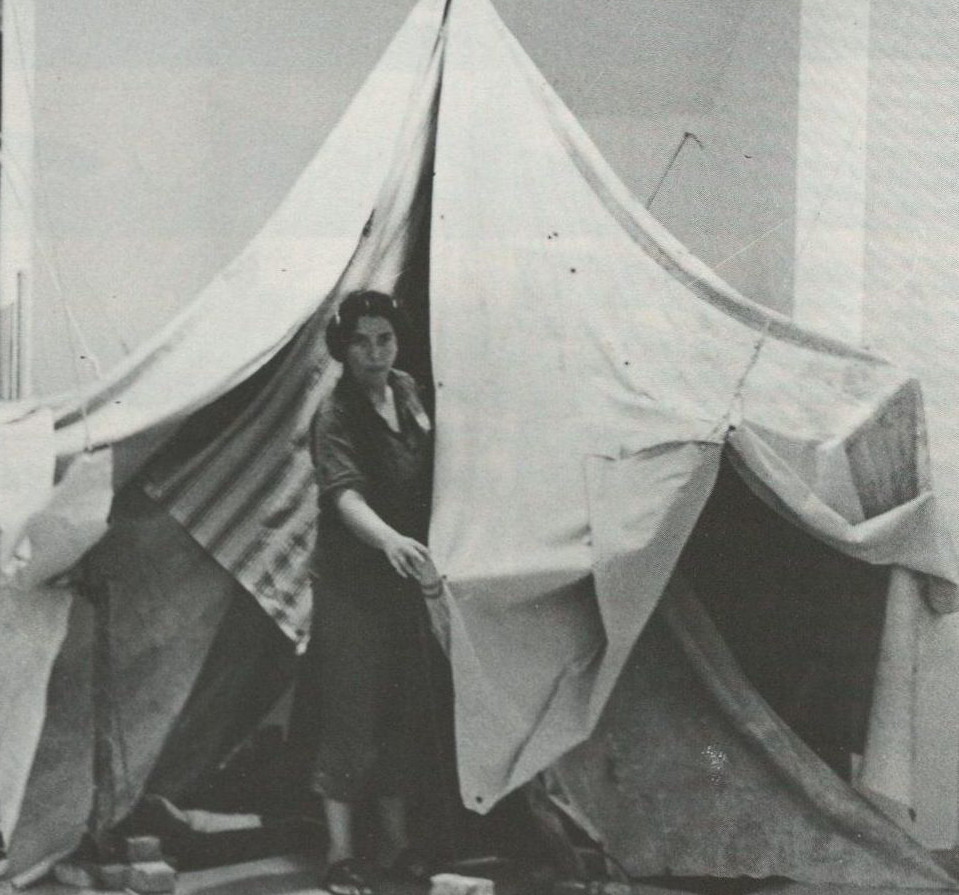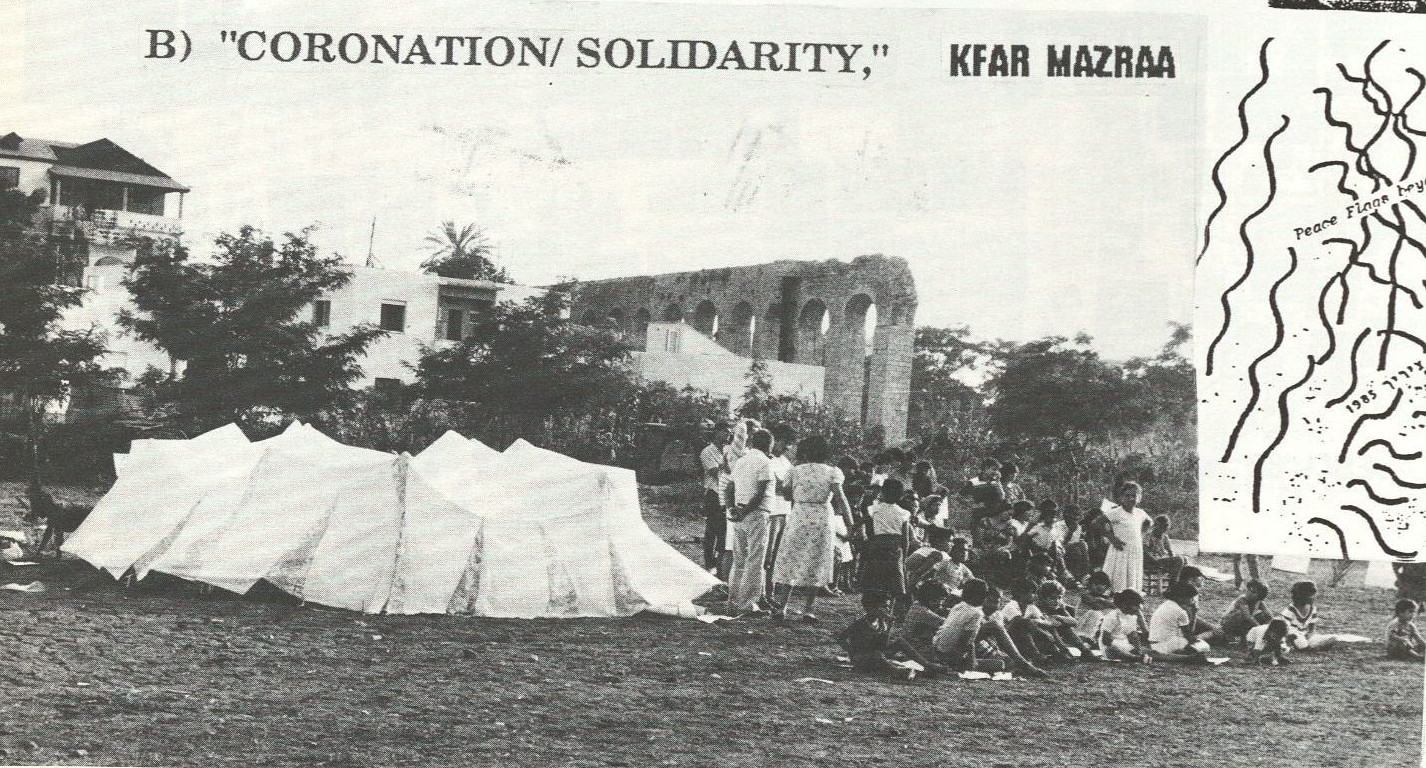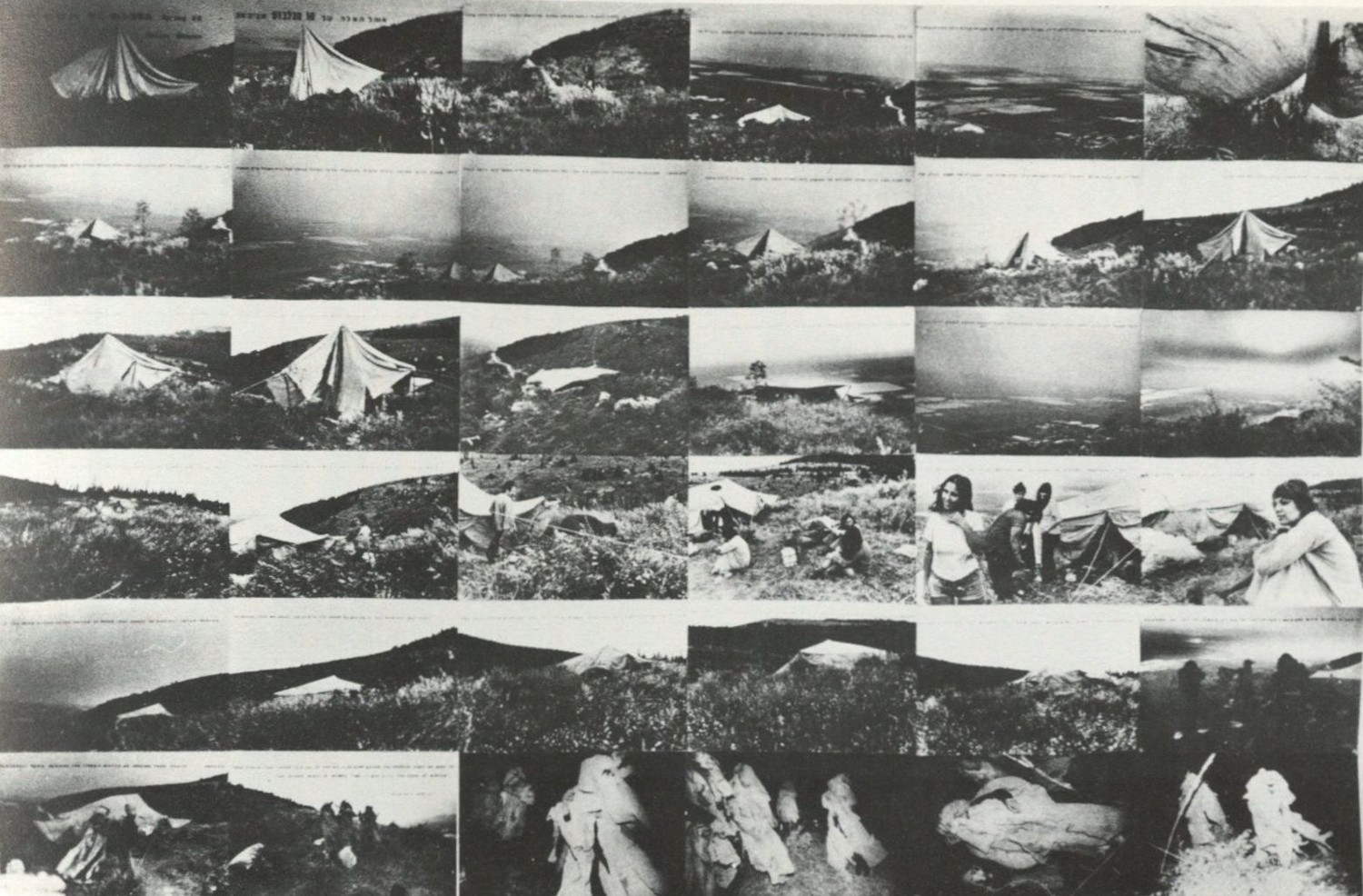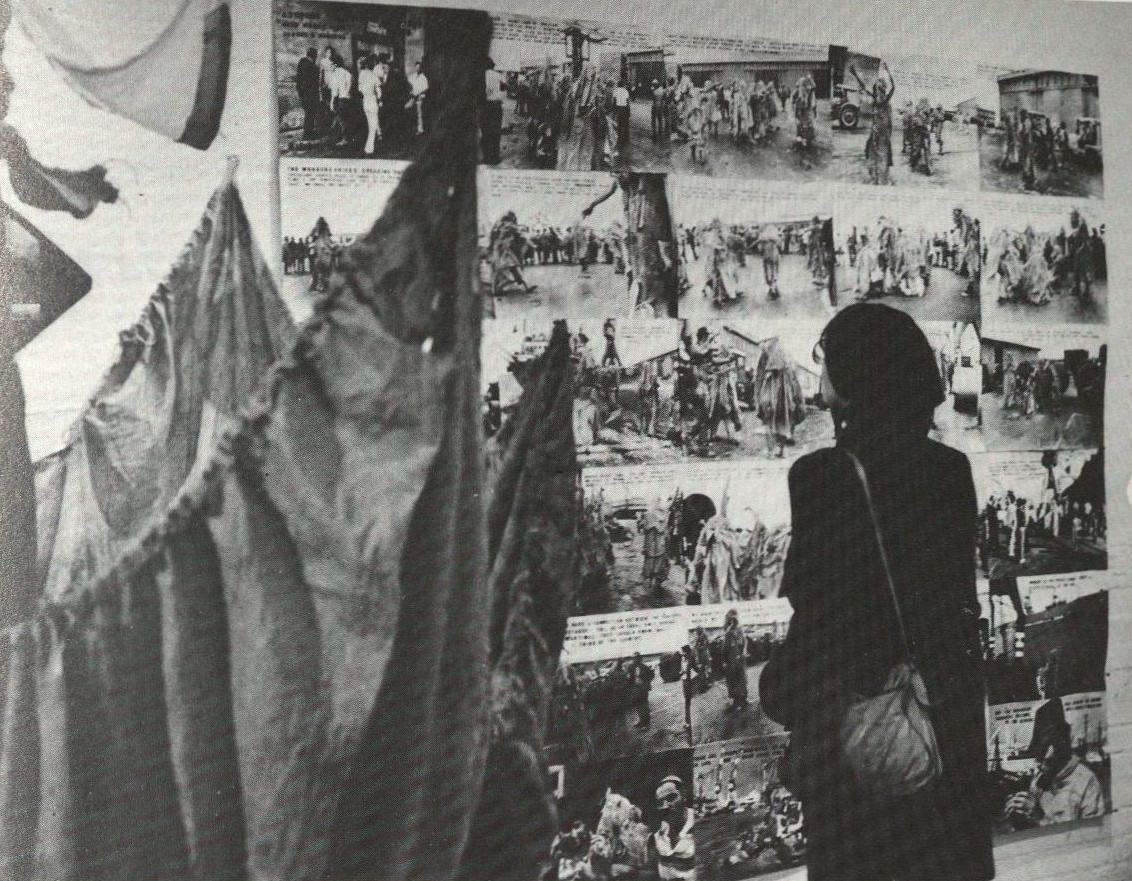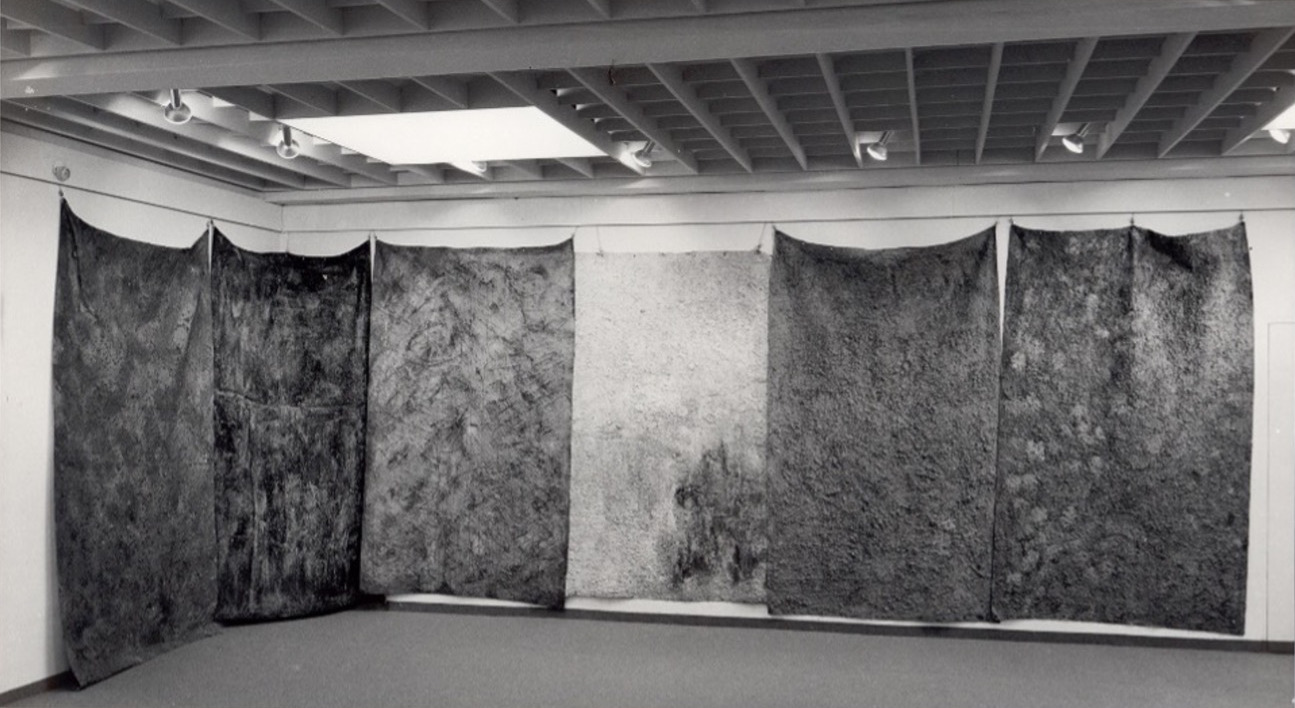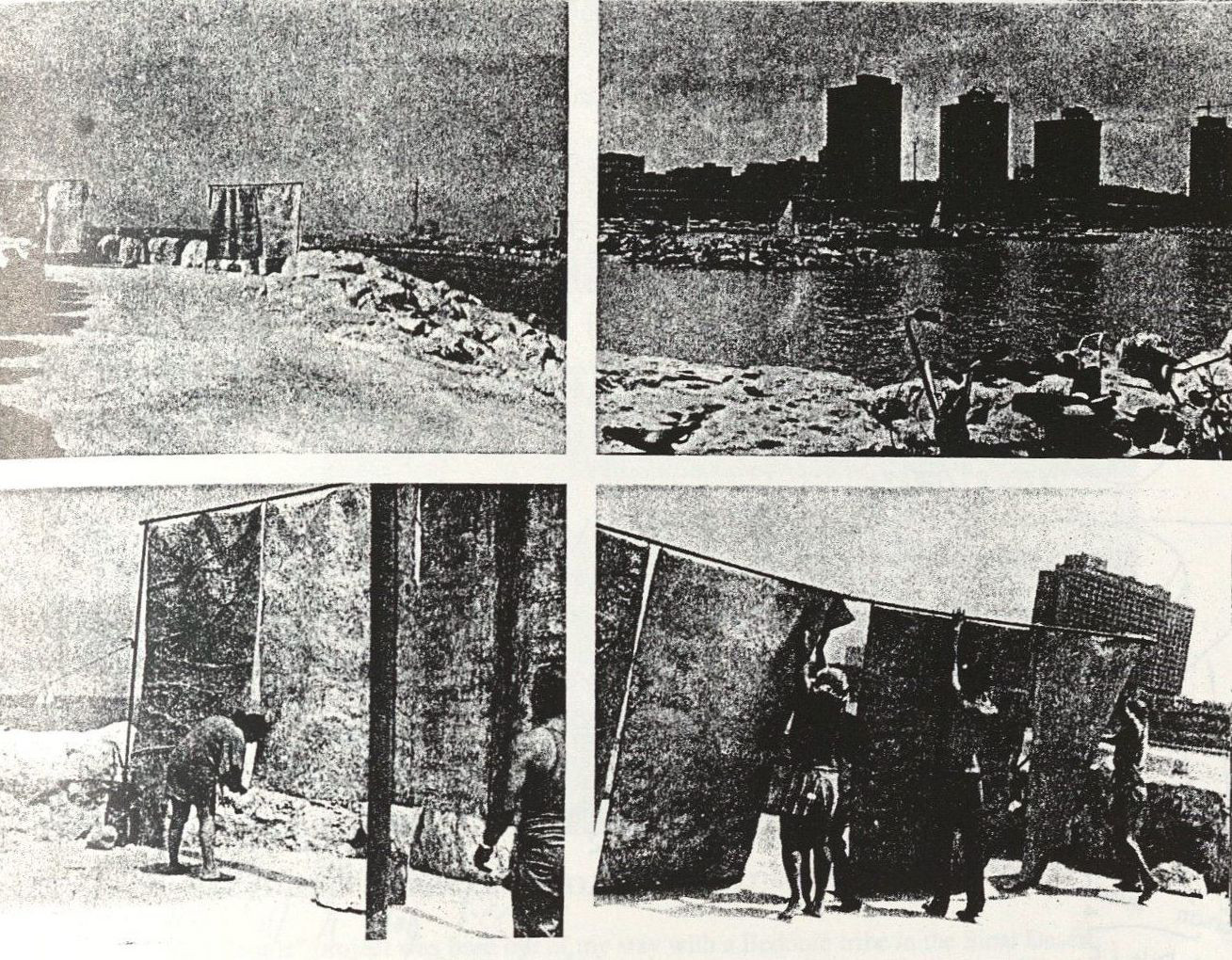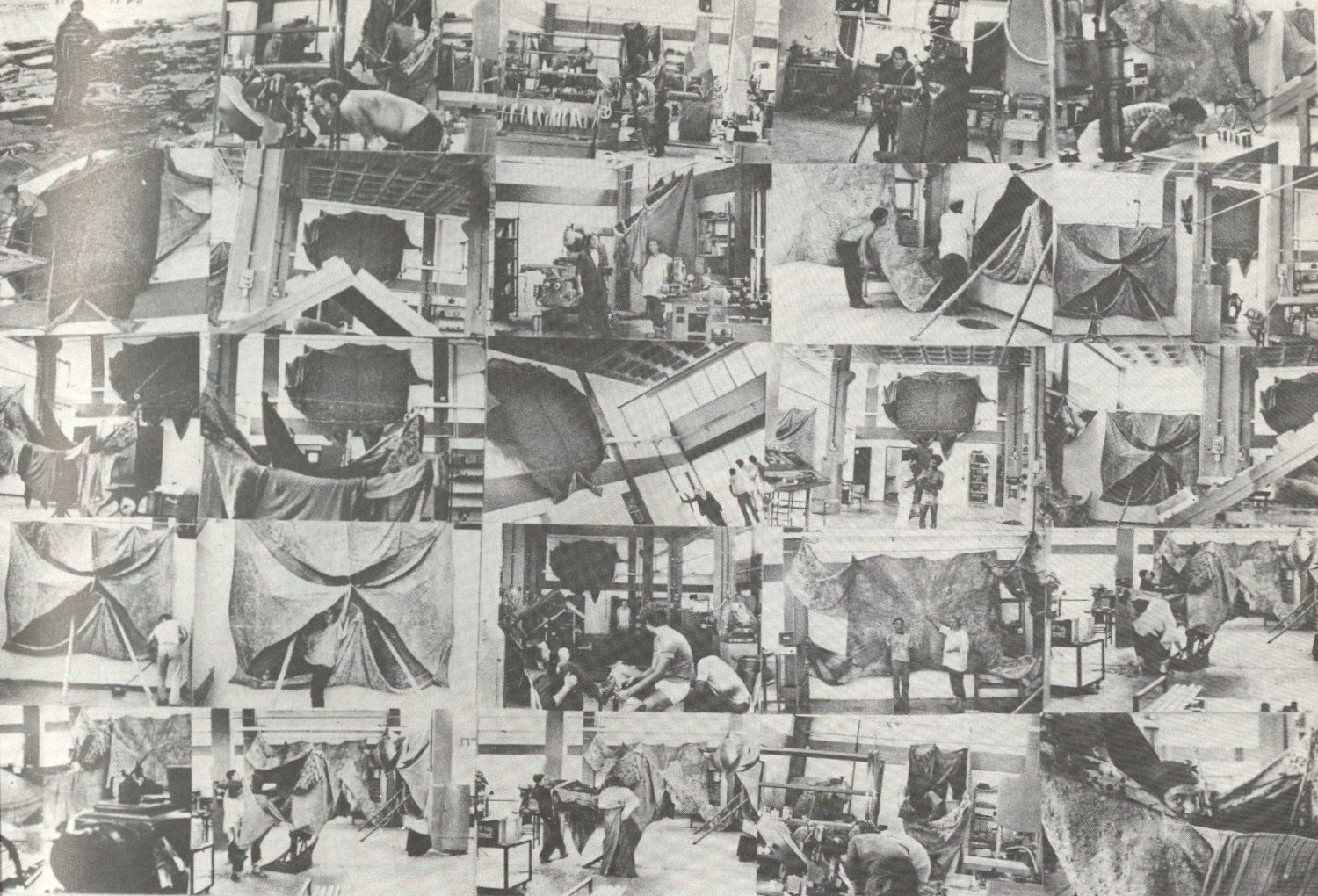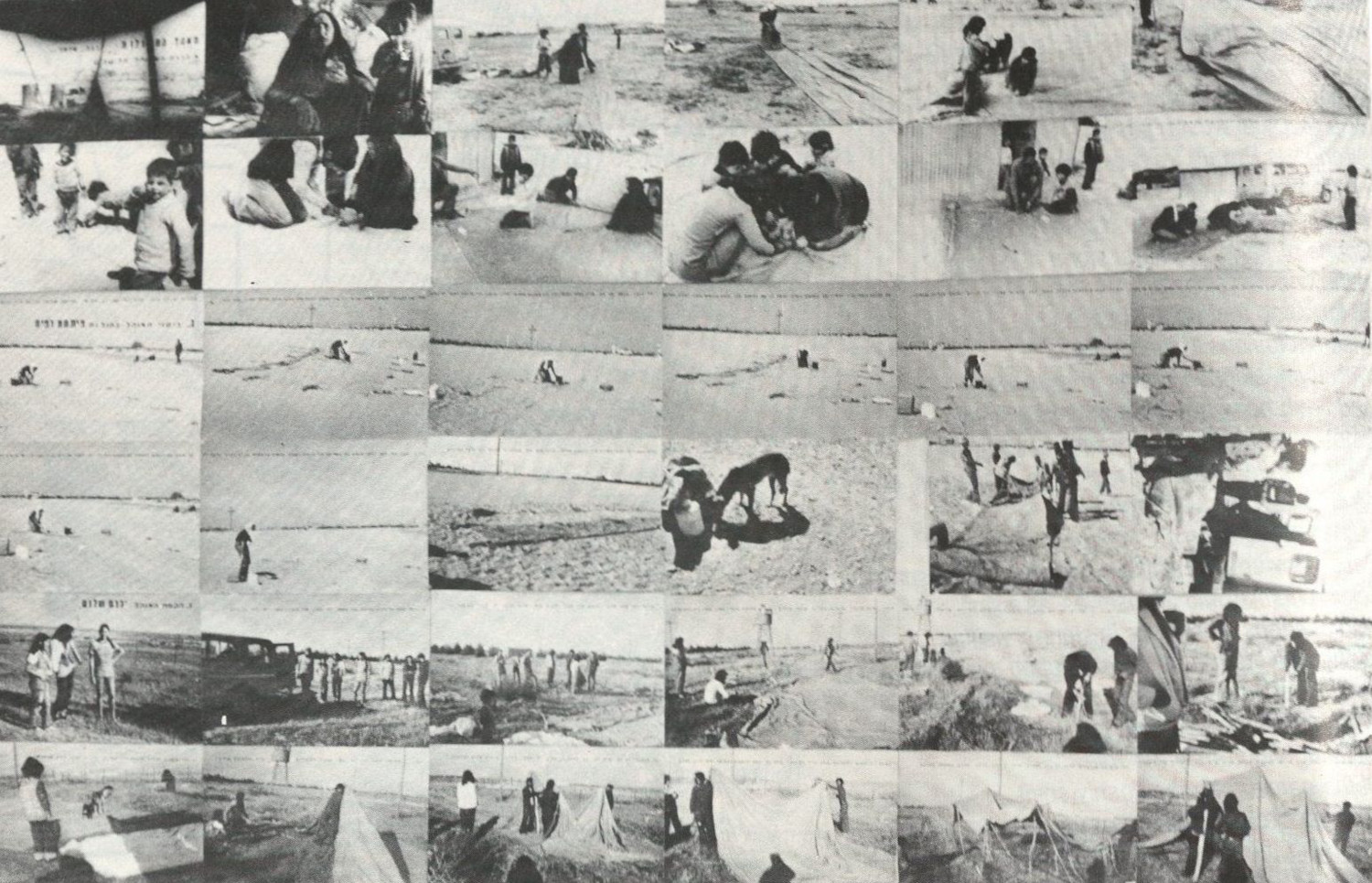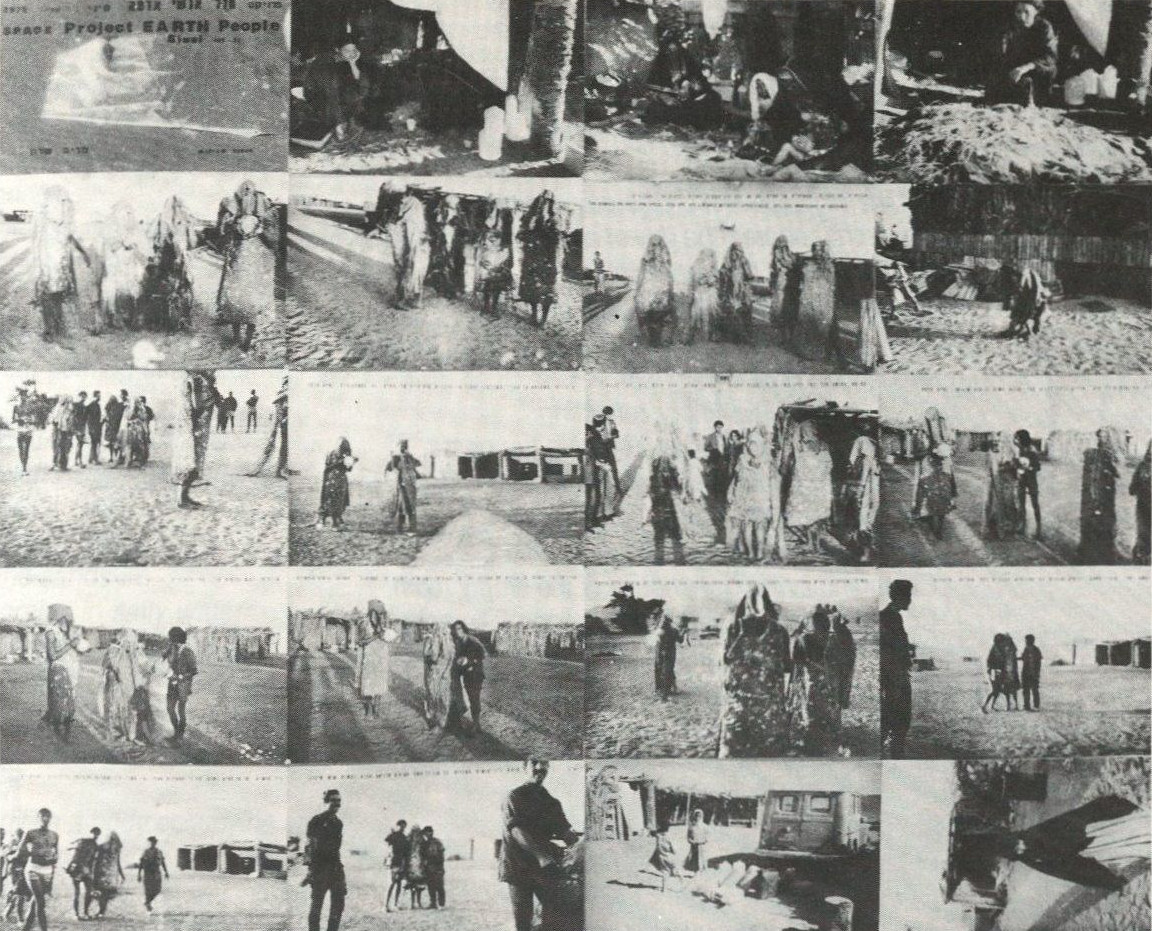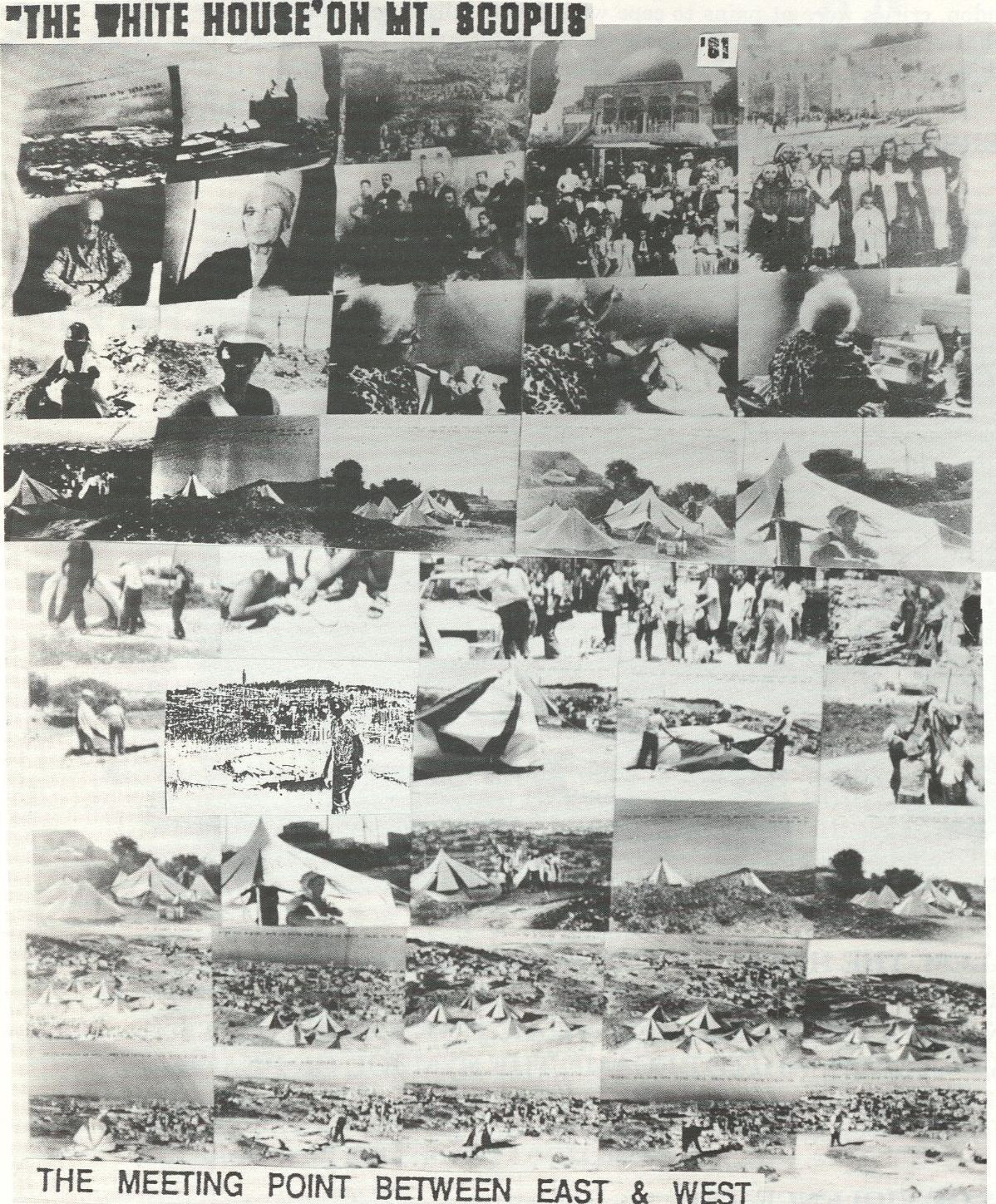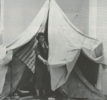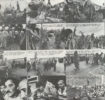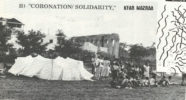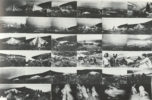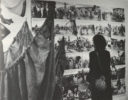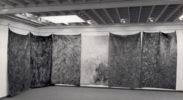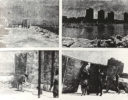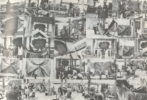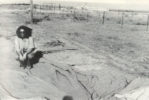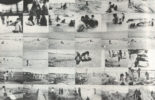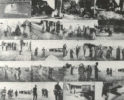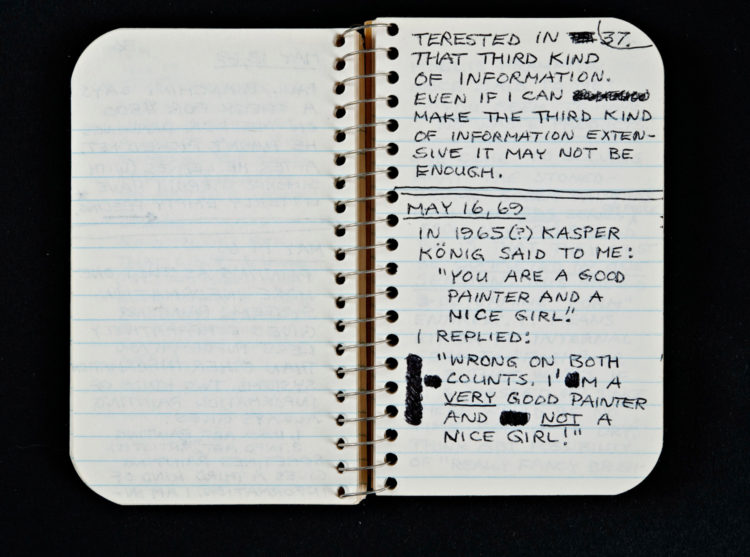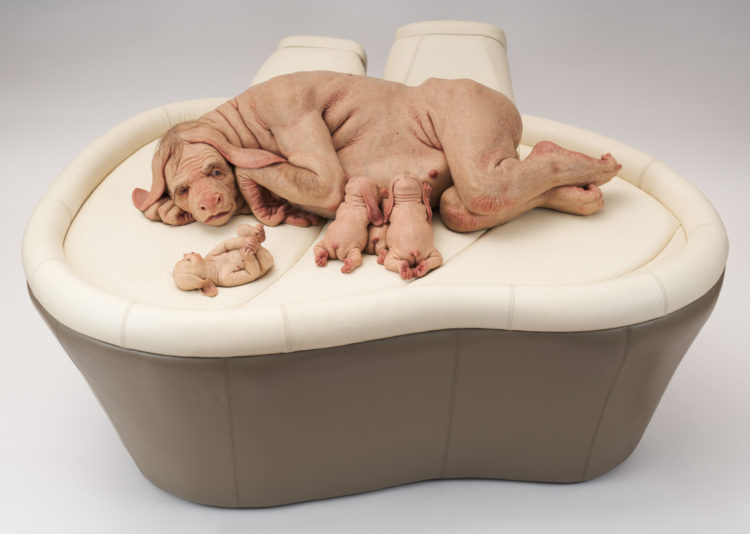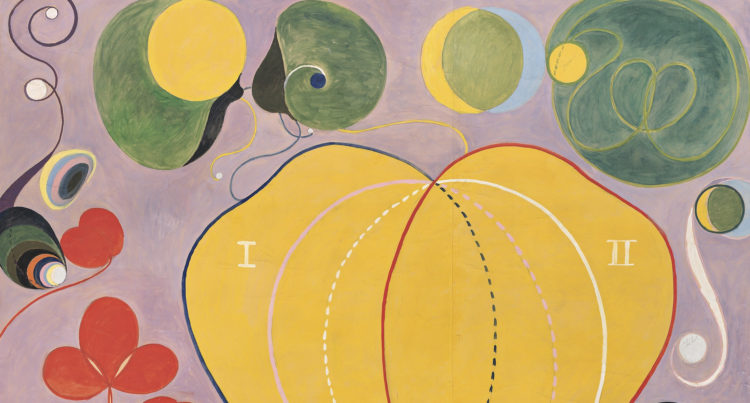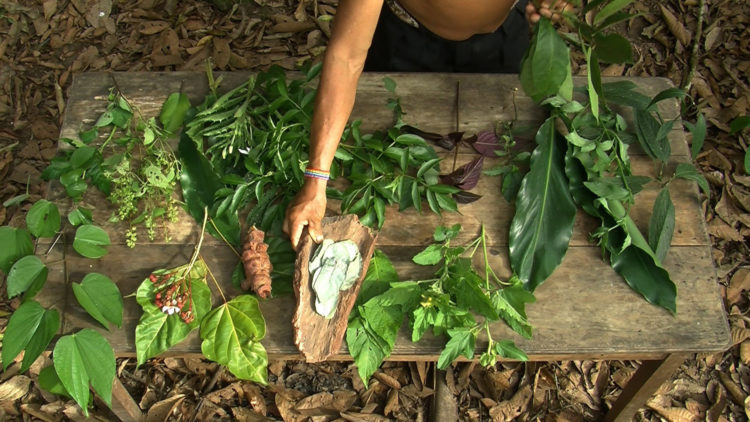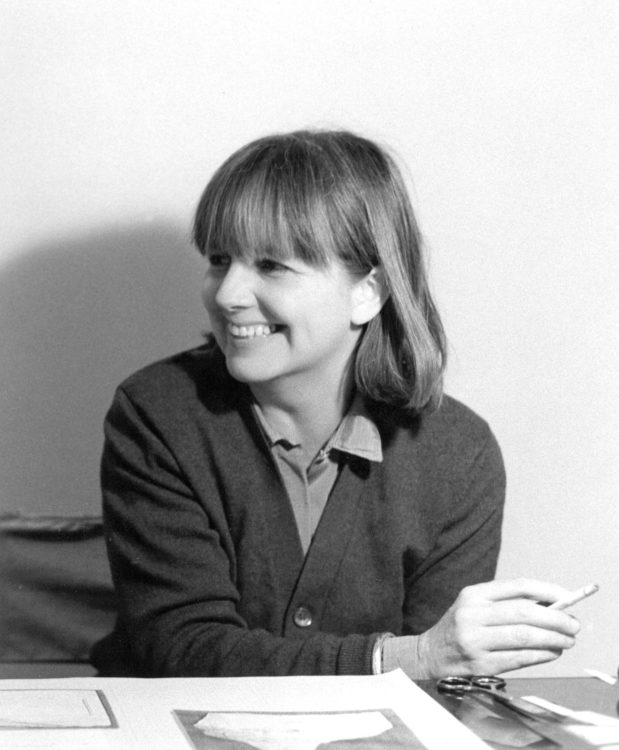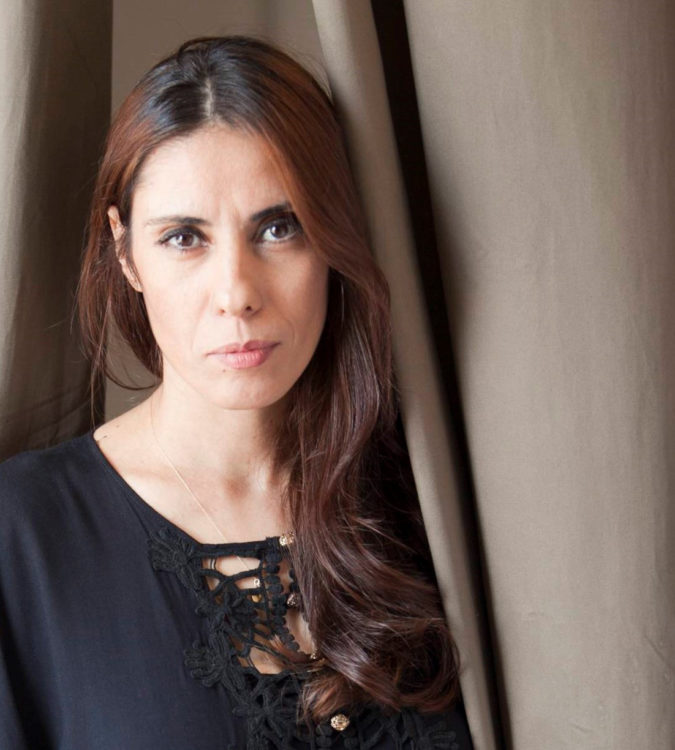Miriam Sharon
Sharon, Miriam, Miriam Sharon’s Alternative Museum: A Book Retrospective 20 Years Art for Peace, Tel Aviv, Miriam Sharon, 1989/2012
→Sharon, Miriam, Art Law: Eco / Com / Systems 1990-2002, New York, Miriam Sharon, 2002
→Dekel, Tal, “Center-Periphery Relations: Women’s Art in Israel during the 1970s, the Case of Miriam Sharon,” Consciousness, Literature and the Arts, no. 8(3), 2007, pp. 1-22
Passing the Batonette, Four Decades of Feminism in Israeli Art, Haifa Museum of Art, Haifa, June 2–October 6, 2007
→Issue: Social Strategies by Women Artists, Institute of Contemporary Arts, London, November 14–December 21, 1980
→Women 78 (19 Israelis Showing Women’s Tendencies in Women’s Art), Tel Aviv Artists’ House, Tel Aviv, June 3–30, 1978; Jerusalem Artists’ House, Jerusalem, July 19–August 6, 1978
Israeli performance and environmental artist.
Miriam Sharon was the first self-proclaimed feminist artist in Israel known for earth and environmental works. Her artistic practice includes performances outside traditional art establishments, installations, earthworks and mail art. M. Sharon’s parents were originally from Vienna, Austria, and moved to Paris before settling in Haifa. She obtained a bachelor’s degree in Art History and Theory from the Hebrew University of Jerusalem and, between 1970 and 1977, became an art critic for the Israeli Painters Association.
In the early 1970s, M. Sharon focused on participatory art in desert and harbour factories, connecting her practice to Israeli land and the local population. Her work on canvas, Meditative Space Pulpit-ation (1973–1975), featuring sand from various Israeli sites, was a post-1973 Yom Kippur War response aiming to transform art from mere decoration to a lifestyle, independent of consumer culture. It won the Dr. F. Schiff Prize at the Haifa Museum of Art 1978 Biennale of Young Artists. Her performance Sinai Desert People (1975) documented her experience of living with a Bedouin tribe, and represented a protest against the technological progressive society attempting to eliminate cultural heritage.
In 1977, she exhibited at the A.I.R. Gallery Invitational Show; and co-founded the International Feminist Collaborations project with Mary Beth Edelson (1933–2021), Suzanne Lacy (1945–), Nil Yalter (1938–) and Ulrike Rosenbach (1943–). In the same year, M. Sharon launched Art Paper Page, a self-published feminist magazine about the Israeli art scene, distributed widely by mail, featuring exhibitions, interviews and commentary.
In 1977, M. Sharon founded Studio 11, a gallery in her apartment. In 1978, she curated the impactful group exhibition Women 78, displayed at Artists’ House Tel Aviv and Artists’ House Jerusalem. It addressed the marginalisation of feminist art in Israel and featured works by Israeli artists. Its programming included a poetry reading with Yona Wallach (1944–1985) and M. Sharon’s lecture entitled “Why a Women’s Show”. The event sparked a divide between M. Sharon, who believed in the strong connection between art and gender, and participating artists who were students of Raffi Lavie (1937–2007), who thought art was unrelated to gender.
In September 1979, A.I.R. Gallery’s Artists in Israel exhibition showcased Israeli women artists in New York for the first time. Curated by Rachel bas-Cohain (1937–1982), it featured M. Sharon, Yocheved Weinfeld (1947–), Aviva Uri (1922–1989), Hannah Shaviv (1949–), Shuli Sadé (1952–) and Dalia Meiri (1951–). The exhibition proved M. Sharon’s deep rooted relationship with the feminist art scene in New York.
In 1990, M. Sharon was excluded from the exhibition Feminine Presence: Israeli Women Artists in the Seventies and Eighties at the Tel Aviv Museum of Art, curated by Ellen Ginton. Despite her lack of recognition in Israel, M. Sharon continued exhibiting internationally through exhibitions such as Issue: Social Strategies by Women Artists in London’s Institute of Contemporary Arts (1980). Modest recognition came in 2007 with the exhibition Passing the Batonette: Four Decades of Feminism in Israeli Art at the Haifa Museum of Art and through scholarship by art historian Tal Dekel. M. Sharon’s contributions challenged societal norms, fostering dialogue about art, gender and activism in Israel.
Partnership with Artis.
© Archives of Women Artists, Research and Exhibitions, 2023


